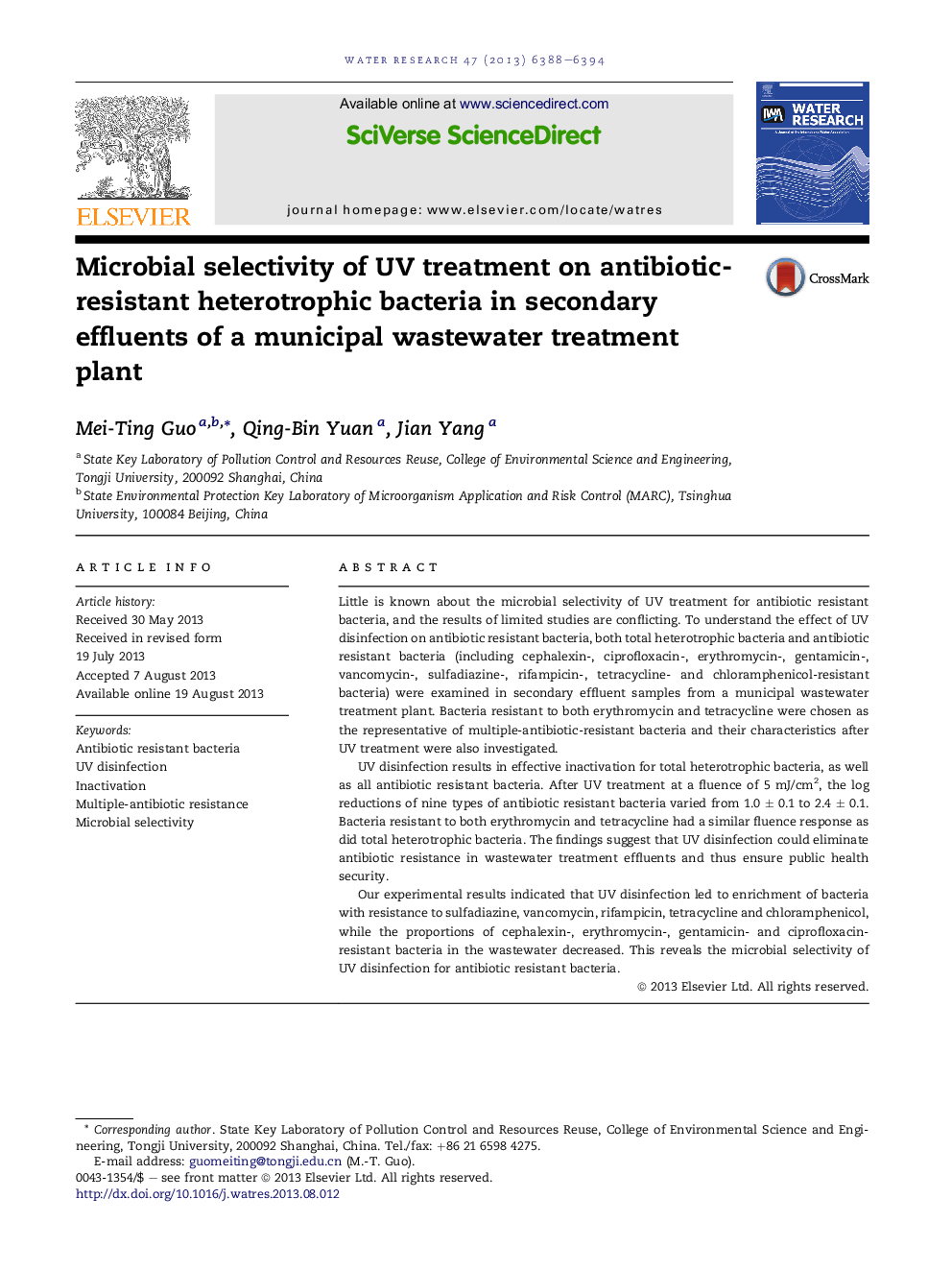| کد مقاله | کد نشریه | سال انتشار | مقاله انگلیسی | نسخه تمام متن |
|---|---|---|---|---|
| 6367343 | 1316837 | 2013 | 7 صفحه PDF | دانلود رایگان |

- UV disinfection shows microbial selectivity to antibiotic resistant bacteria.
- UV disinfection led to enrichment of sulfadiazine-, vancomycin-resistant bacteria.
- UV disinfection decreased proportions of cephalexin-, gentamicin-resistant bacteria.
- MAR bacteria had similar UV fluence response with total heterotrophic bacteria.
Little is known about the microbial selectivity of UV treatment for antibiotic resistant bacteria, and the results of limited studies are conflicting. To understand the effect of UV disinfection on antibiotic resistant bacteria, both total heterotrophic bacteria and antibiotic resistant bacteria (including cephalexin-, ciprofloxacin-, erythromycin-, gentamicin-, vancomycin-, sulfadiazine-, rifampicin-, tetracycline- and chloramphenicol-resistant bacteria) were examined in secondary effluent samples from a municipal wastewater treatment plant. Bacteria resistant to both erythromycin and tetracycline were chosen as the representative of multiple-antibiotic-resistant bacteria and their characteristics after UV treatment were also investigated.UV disinfection results in effective inactivation for total heterotrophic bacteria, as well as all antibiotic resistant bacteria. After UV treatment at a fluence of 5 mJ/cm2, the log reductions of nine types of antibiotic resistant bacteria varied from 1.0 ± 0.1 to 2.4 ± 0.1. Bacteria resistant to both erythromycin and tetracycline had a similar fluence response as did total heterotrophic bacteria. The findings suggest that UV disinfection could eliminate antibiotic resistance in wastewater treatment effluents and thus ensure public health security.Our experimental results indicated that UV disinfection led to enrichment of bacteria with resistance to sulfadiazine, vancomycin, rifampicin, tetracycline and chloramphenicol, while the proportions of cephalexin-, erythromycin-, gentamicin- and ciprofloxacin-resistant bacteria in the wastewater decreased. This reveals the microbial selectivity of UV disinfection for antibiotic resistant bacteria.
286
Journal: Water Research - Volume 47, Issue 16, 15 October 2013, Pages 6388-6394